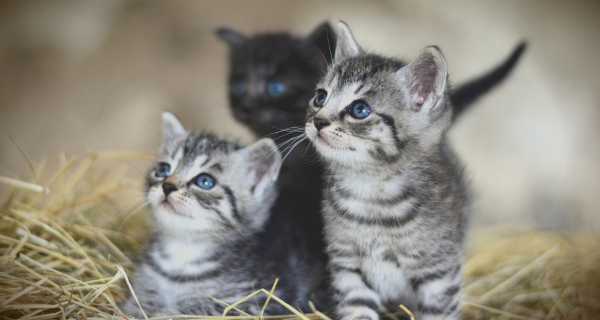

First Impressions…
Kittens should be clean and free of ear mites, fleas, matted fur, and skin conditions including ringworm! Eyes should be bright and clear with no discharge and no sneezing. A kitten should be quite calm when handled with no evidence of pain - but remember to be gentle as its ribcage is delicate. You can check inside the mouth for plaque build-up, sore gums and abnormal teeth. Beneath the tail should be clean and dry with no signs of diarrhoea or soreness.
There are three recommended avenues for purchasing your new kitten depending on whether you want a purebred or a moggy. For a purebred cat it is best to purchase from a breeder that is currently registered to a governing cat body. If you want to help out an abandoned kitten then look for a recognised rescue/welfare group. If you would prefer to buy from a store then seek out a good pet store. In any of the three places you have the best chance of buying a quality kitten with the right advice. Regardless of where you look, remember to check the conditions in which the kittens are kept. They should be spotlessly clean and warm and the kittens should be eating independently.

Buying a purebred kitten…
One advantage of buying a purebred kitten is that you know exactly how it will look and behave when it is an adult. Purebred kittens have known characteristics – for example, the Himalayan is less likely to hunt and kill birds and wildlife. The Bengal enjoys going in the water and some have been known to swim!
The best place to buy a purebred kitten from a good pet shop or a registered cat breeder. The average cost of a purebred pet kitten (without its pedigree) is approximately $300 - $600 on average in Australia. If you are buying the applicable pedigree to go with your kitten or cat (i.e. in order to show) then for example for a high quality entire (not de-sexed) male you can expect to pay anything from at least $1500.00 and upwards. Some show kittens or cats are available for less but that could be because they are de-sexed, older or not likely to get very top show awards due to very high competition etc. These cats are still able to win several prizes or awards and should not be discouraged to be shown. In fact this is often the only way a novice can break into the show arena. These type of show kittens or cats could be bought for approximately $700 - $1200 on average depending on such aspects like how many of the above factors apply. You should be made to feel welcome by the breeder or pet shop to ask any questions about your kitten. It is worth enquiring about the kitten’s litter-mates and parents and if the breeder has their own stud cat then you should be able to view (at least at a distance) the mother and or father.

Buying a ‘rescue’ kitten…
Adopting a kitten or cat from a rescue group is a great way to find a variety of pets to choose from. As long as the group is a registered charity, and is clean and staffed by knowledgeable animal lovers, the feline you adopt should be healthy, well adjusted and a wonderful family member.
All pets from a rescue group should be vet checked, vaccinated, wormed and flea treated, and will either be de-sexed or come with a discount de-sexing voucher. Many groups will also provide details of the kitten’s history, a temperament check, and a guarantee should things not work out. The kitten will end up costing less too. Buying an unvaccinated, un-wormed kitten is very risky and having to do all of the above mentioned things will cost more if you do it yourself than the minimal fee most rescue groups ask. Knowing you’ve given a home to a needy kitten or cat is one of the most satisfying feelings a cat lover can have. Choose carefully, and a rescue group can be a wonderful source of feline companions.

Kitten Care…
Kittens should be wormed consistently (including tape-wormed) and come with a Vaccination certificate. Kittens need to be wormed every two weeks up to the age of twelve weeks then once monthly to six months of age.
When purchasing a kitten it is advisable to go to a vet for a complete check up. Some good pet shops actually provide a voucher for a free vet consultation.
It is good to ascertain how well the kitten takes to being combed and bathed, as regular grooming is important for long-haired kittens. The kitten should not have any bare or rough patches on its skin as this could be a sign of ring worm which is a fungal disease that humans and other pets can easily catch as it is highly contagious.
All kittens should have healthy appetites and it is important to feed them a high quality balanced premium kitten food from your vet or a good pet store. I would recommend both dry and tinned food. Before you leave with a kitten it is useful to find out what food and dietary fancies it may have. The kitten should ideally eat the same food which it is used to as a sudden change of diet combined with the stress of adapting to a new home can cause stomach upsets and diarrhoea. Make any changes to the diet gradually.
It is useful to have a few supplies on-hand before you bring your kitten home. This could include items such as dry and tinned food, bowls, litter tray, litter, transport carrier or cat cage, toys, grooming supplies including pet shampoo, ID tags, collars, bed and scratching post etc. A good pet shop can offer excellent advice here.

Taking the New Arrival Home…
The transport of your kitten or cat should be in a proper carrying container. As felines may exhibit territorial or fear aggression it is important to allow any existing cat, kitten or pet(s) to meet the new arrival slowly and always supervise this.
It is usually best to keep the new kitten in a separate room with its own water, food and litter tray etc. This also helps the existing feline (or pet) to not feel its territory is threatened. It is a good idea to put each kitten or cat into a cage or transport carrier and then reverse them into each other cages and put them near each other in a room so that they can get used to each others odour. If there is any fear or aggression shown then the cages could be put further apart the next time and so forth but common sense with gradual supervised introductions usually works well. Kittens also tend to be accepted more readily than adult cats by other pets.
It is important to not have any dangerous toys or items around kittens and it is worth making periodic checks to see that all toys are in good condition. Most kittens like to crawl into cupboards, wardrobes and other small or dark places so it is a good idea to always remember to close toilet lids, washing machines and dryers and to prop open any doors that the wind can blow shut etc. Recliner chairs should be turned upside down to ensure there are no holes underneath that a kitten might crawl into. Lamps, electrical chords and chords hanging from blinds are other examples of hazards and in fact any sharp objects, plastic bags and poisons should all be kept well away from reach of kittens. There are many substances that are poisonous to kittens such as chocolate, coffee, medications, snail bait, cleaning agents, anti-freeze, petrol, gardening products and so on. I find if strangers come into your house then they should be notified that you have a kitten and so if they use the toilet for example it may be prudent to check after that the lid is down – many kittens die from jumping into toilet bowls and then not being able to get out.
Children should be taught how to pick up and hold a cat by using two hands – one under the front legs and the other hand under the rear end. Children should also handle the cat gently and keep it away from their faces.
After you take your kitten home it will likely need a second or possibly third vaccination. Your Veterinarian (Vet) can advise you on other matters including topics such as the importance of de-sexing, micro-chipping, fleas, kitten kindy, lists of poisonous plants and worming etc. Finding a good Vet experienced with cats will go a long way to the right support for you and your kitten.
It is important that whether you are home or away from your kitten or cat that it has a stimulating, full lifestyle involving affection and proper care and attention. This does not mean it has to roam the streets as there is a variety of very flexible and adequate cage confinement systems available these days. Cats that roam are a community nuisance as well as a danger to themselves. There are also plenty of games and amusements readily available such as ping pong balls, rolling treat balls and multi-level carpeted cat houses to name a few.
Kittens are just “little people with fur” and should therefore be treated accordingly! Remember to spend a lot of quality time with your kitten because the most important thing in life to him or her is you!


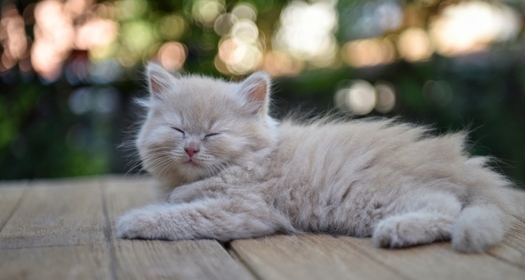
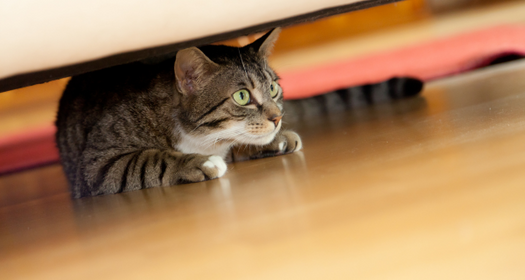
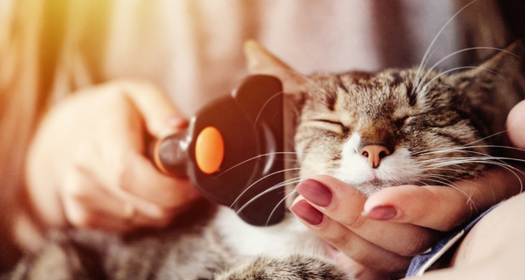
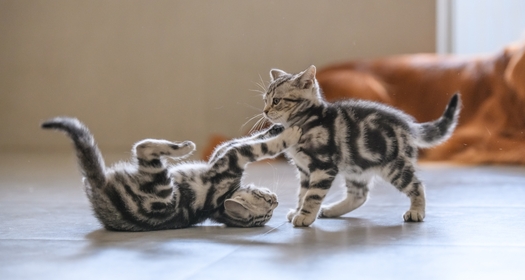
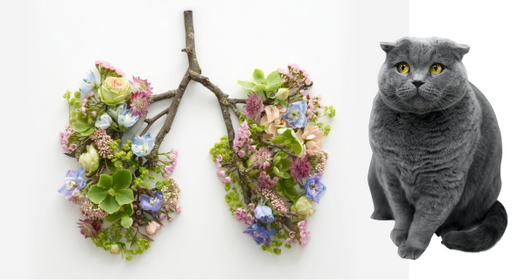




Leave Comment Below